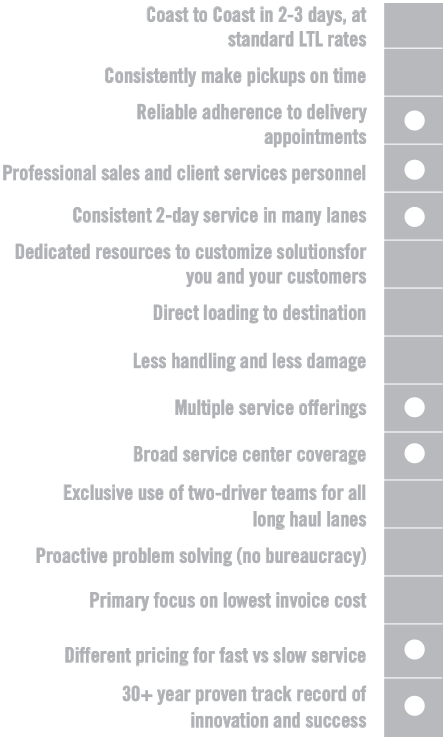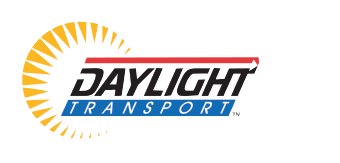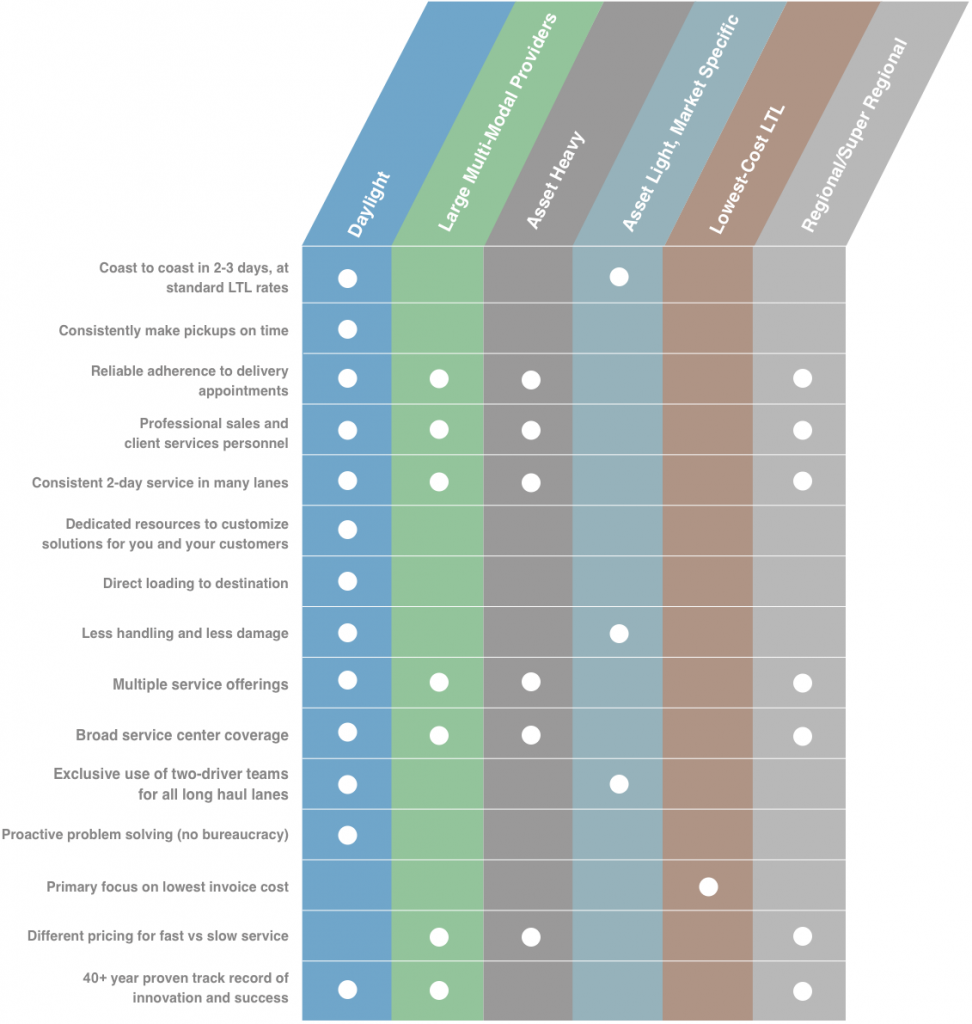The Daylight difference: An industry comparison
Daylight
Daylight Transport has a passion for customer-focused innovation and flexibility. We’ve defied the LTL industry status quo for almost 40 years. This translates into differences you can measure. Here is a comparison of Daylight versus LTL carriers, organized by category.
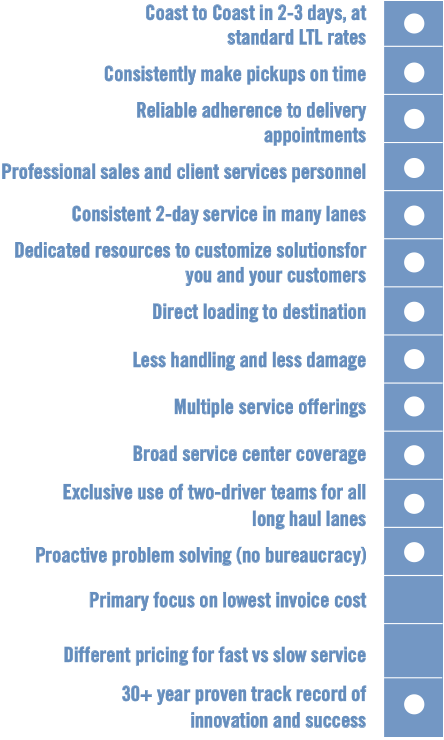
Large Multi-Modal Providers
Very large, multi-faceted logistics corporations who offer LTL along with other services. Ranging from the smallest to the largest, from intermodal to international freight forwarding. Being very large corporations, they can be less flexible. Attempt to be everything to everyone. Fast/slow pricing for LTL: Expedited costs more.
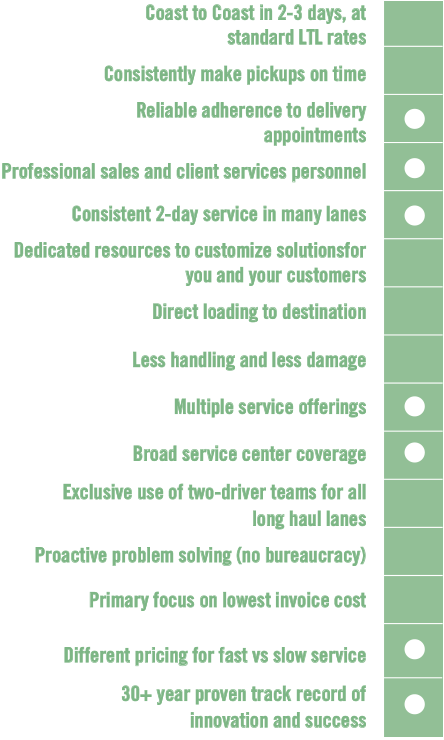
Asset Heavy
Carriers who have large fleets and dense national footprints. Have been around for many years. Network based and can have difficulties building custom solutions or being flexible. Have fast/slow pricing for LTL: Expedited costs more.
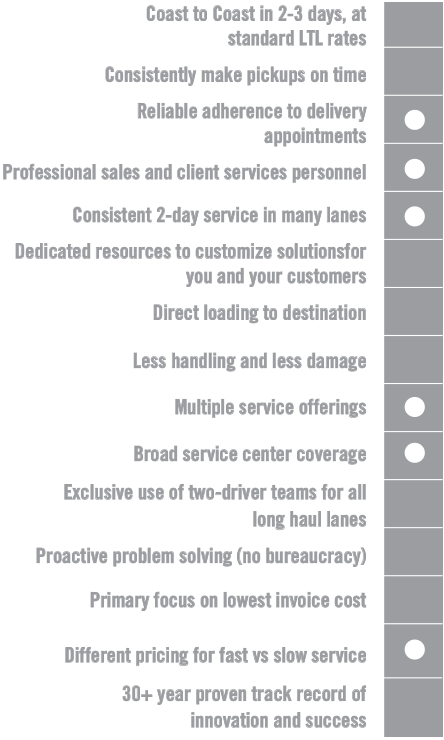
Asset-Light, Market Specific
Smaller carriers offering fast long haul LTL service have emerged, promising to 2- or 3-day coast-to-coast service. Lack the scale, structure and volume to be able to offer this speed with a high level of consistency on a large number of lanes.
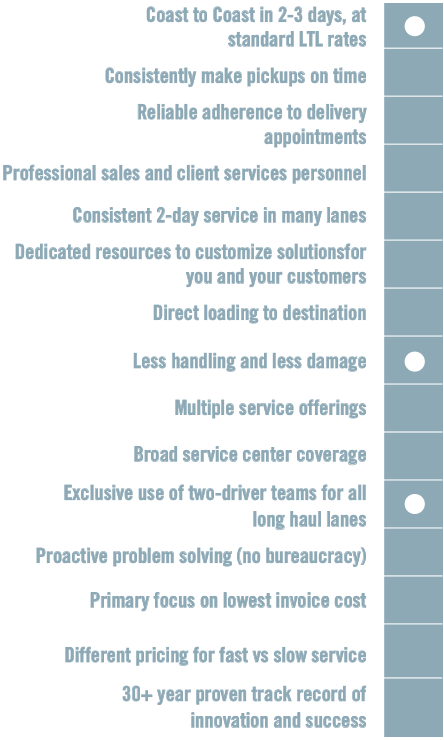
Lowest Cost LTL
LTL carriers who compete solely based upon invoice price. Service and speed become secondary because full trailers are required. Often rely on brokers to drive volume, eliminating direct sales/customer service relationships and flexibility. Pricing does not include soft costs for extended transit time and potential damage.
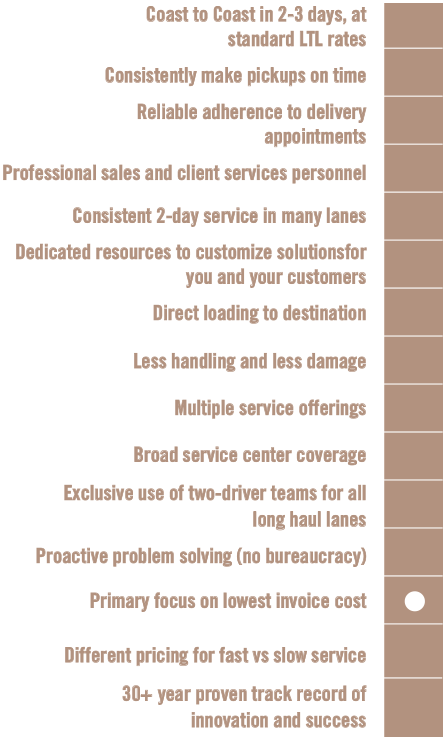
Regional/Super Regional
Carriers who reached the scale to offer a nationwide route structure. They operate within the norms and structures of the large, traditional LTL industry, reducing flexibility. Fast/slow pricing for LTL: Expedited costs more.
